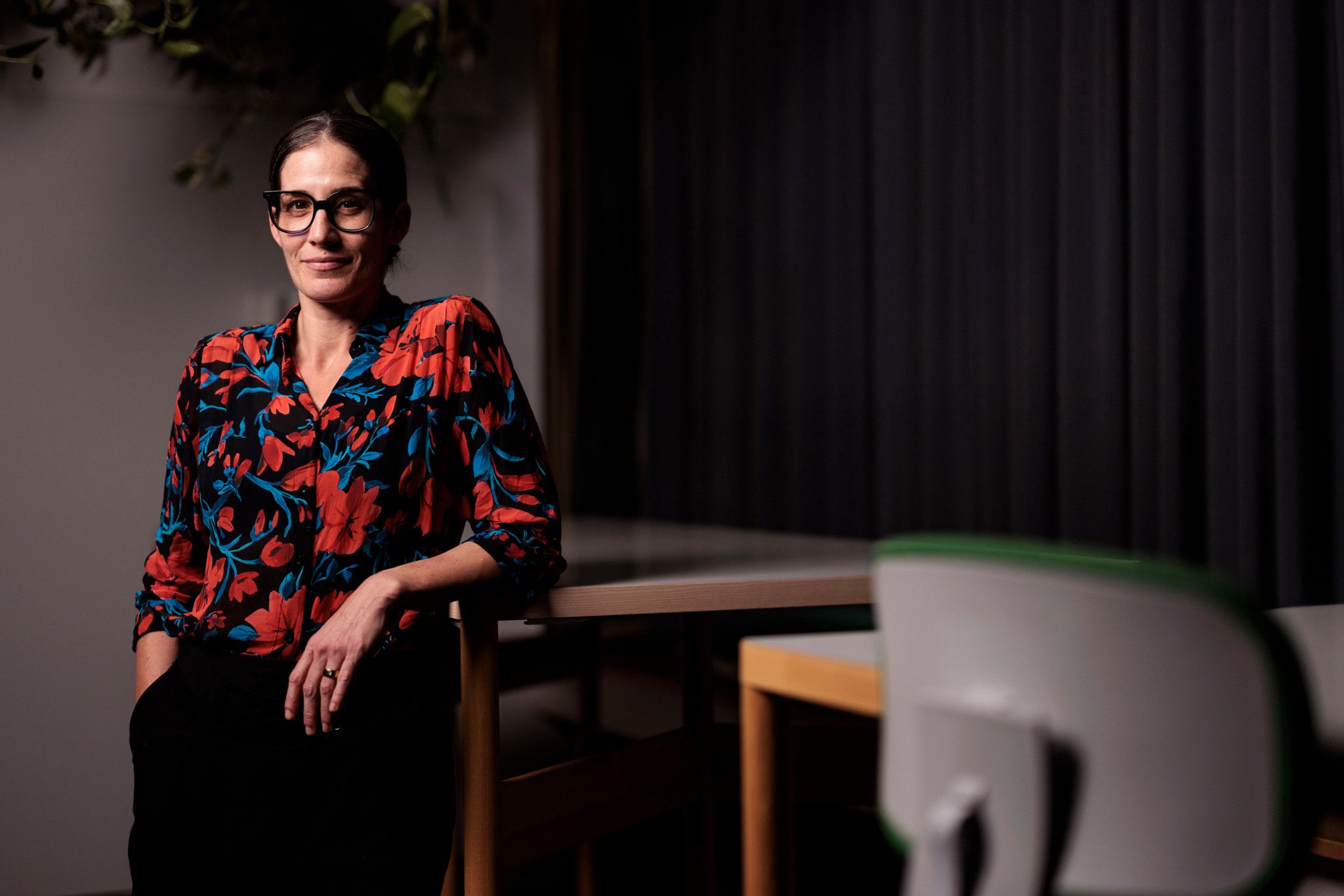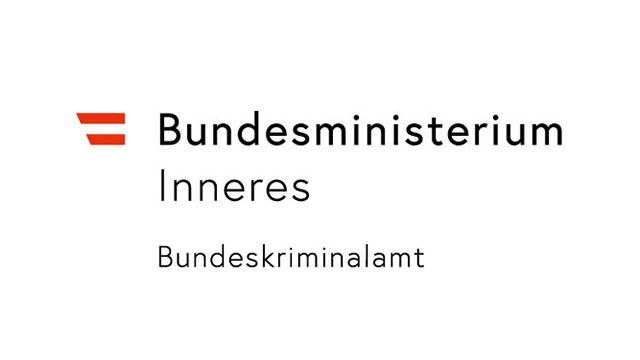
AFC Lab News


WDR 5 Neugier genügt: Genies der Gesichtserkennung: Super-Recognizer

Kooperation mit dem Bundesministerium Inneres / Bundeskriminalamt (Österreich)
ARD Audiothek - Super-Recognizer: Mehr als nur ein Gesichtsgedächtnis
Im Gespräch mit Frau Wetzke spreche ich über unsere neue Studie - die 1. FPVS EEG Studie überhaupt - publiziert in Brain Topography.
Face2Face: Wie gut erkennen Sie Gesichter (und Fakes)?
Am 5.9.2025 fand unsere Fachveranstaltung / Public Engagement Event zum Thema Super-Recognizer & Deepfakes statt.
Drucksache 19/22 995
Schriftliche Anfrage des Abgeordneten Thorsten Weiß (AfD) zum Thema: „Super Recognizer“ bei der Polizei Berlin
Pressekonferenz mit der Polizei Berlin
Am 18.6.2025 sprachen Meike und Vertreterinnen der Polizei Berlin mit der Presse.
Super-Recognizer: Ein Jahr Pilot-Betrieb
Die Kantonspolizei St. Gallen und die Stadtpolizei St. Gallen haben in einem einjährigen Pilotprojekt die Einsatzmöglichkeiten von Super-Recognizern in der Polizeiarbeit evaluiert. Dieses schloss erfolgreich ab und der Einsatz dieser ausserordentlichen Fähigkeit im Einsatz hat sich bewährt. Künftig werden Super-Recognizer bei der Kantonspolizei St.Gallen und bei der Stadtpolizei St.Gallen in einer Zusatzaufgabe zum Einsatz kommen und unter anderem für Bildfahndungen sowie bei Veranstaltungen eingesetzt werden.
Zu Gast beim Video-Podcast "Raum & Zeit"
Tim Vollert & Maximilian Bensinger sind dem Thema Super-Recognizer auf den Grund gegangen.
Are you a super-recognizer? The science of superior facial processing.
Our ability to recognize faces is part of a spectrum -- from those with face blindness to super recognizers.
Was können «Super Recognizer» (noch)? Gesichter *und* Stimmen?
Im Interview für die Schweizerische Kriminalprävention diskutieren Andrea und Meike über die Identitätswahrnehmung auf Basis von Gesichtern & Stimmen, und warum Forschung und Anwendung stärker zusammen arbeiten sollten.
Super Recognizer - recognizably super?
Schriftliche Anfrage der Abgeordneten June Tomiak (Grüne) vom 4.7.2024 und Antwort vom 16.7.2025
Super-Recognizer Pilotprojekt in St. Gallen
Polizei setzt bei Verbrecherjagd auf Superbrains
Winner Ignite Session
At Curious 2024 - Future Insight Conference Meike was selected the Winner of the Ignite Session
Berlin Police's Super-Recognizers deployed at the European Championship
A group of Berlin Super-Recognizers identified with beSure® and the AFC Lab procedures will be deployed at the European Football Championship
The spitting image? How we see lookalikes – and how to identify them
An interview published in the Dutch outlet de Volksrant. Stan van Pelt asked Meike about Doppelgängers and face recognition.
Das Putin-Experiment: Super-Recognizer versuchen, Doppelgänger des russischen Präsidenten zu enttarnen
Manche Menschen können Gesichter vielfach besser erkennen und zuordnen als der Durchschnitt. In einem exklusiven Versuch haben die NZZ und ein Forschungs-Team der Uni Lausanne Super-Recognizern Bilder von Putin vorgelegt – mit erstaunlichem Resultat.
St. Gallen: Stadt- und Kantonspolizei setzen Super-Recognizer ein
Beitrag des SRF über das Projekt mit der Polizei in St. Gallen
How can super-recognizers help police investigations?
A high school friendly version of our PNAS article now published in Science Journal for Kids
Orion Policy Institute Podcast
Facial Recognition and Responsible Use of Technology
Bundeswettbewerb Künstliche Intelligenz
Eingeladen von den Initiatoren des BWKI konnte Meike mit den anderen Jury-Mitgliedern die Gewinner 2023 ermitteln.
Fokusbericht der Kantonspolizei St. Gallen
Meike hat Mitarbeiter:innen der Kantonspolizei St.Gallen und Stadtpolizei St. Gallen auf ihre Fähigkeiten getestet um gemeinsam mögliche Einsatzszenarien von Super-Recognizern zu evaluieren.
11th Europol Data Protection Experts Network (EDEN) Conference on Data Protection in Law Enforcement
Whisperers of Contrast - Challenges & Opportunities for Data Protection in Law Enforcement
Super-Recognizer bei der Polizei
NDR Info - Wissen interviewed Meike on the lab's work - and the hype around Super-Recognizers
Human-centered face recognition
Meike was invited to give a Coffee Talk to all Swiss National Science Foundation (SNSF) employees.
Zu Gast beim Podcast FERNBLICK
Zara Sarson & Hannes Caspar luden Meike zu einem Gespräch zum Thema "Gesichter" ein. Hierbei sprachen sie über Kunst, KI, Kinder, ... und vieles mehr.
Hype around Super-Recognizers - the people with the super view
Eiken Bruhn from taz dove deep into the state of Super-Recognizers in German law enforcement.
Super-Recognizer – Jahrmillionen der Gesichtserkennung
Auf dem Europäischen Polizeikongress lud Dr. Eva Proll Meike zum Sofa Talk Interview ein.
Virtual talk for the Australian & New Zealand Forensic Science Society
Meike talked to practitioners about her recently published and ongoing work on Super-Recognizers and Forensic Perpetrator Identification.
GESICHTSERKENNUNG : Kriminelle uberfuhren dank Super-Recognizern?
Während sich manche Menschen Gesichter schwer merken können, erkennen andere besonders gut Personen wieder. Können diese Super-Recognizer helfen, Straftäter zu überführen?
Polizei RLP setzt auf Super Recognizer
In diesem Bericht geht es um die Super-Recognizer, die das AFC Lab mittels Labor-Tests in Rheinland-Pfalz identifiziert hat.
First empirical validation of a novel diagnostic framework for lab-based Super-Recognizer identification and their value for policing
Professor Meike Ramon and Dr. Maren Mayer, respectively researchers at the University of Lausanne and the Leibniz Institute for Media Research, publish the results of the first-ever empirical study investigating how Super-Recognizers identified with a recently proposed formal diagnostic framework perform in forensic perpetrator identification in the prestigious journal PNAS.
IFL Science covered our paper recently published in PNAS
Could You Be A Super-Recognizer And Help Fight Crime? Super-Recognizers have a superpower that may be be valuable for police and criminal investigations.
ORF TVTHEK - Mayrs Magazin - Wissen für alle
Ein Beitrag des Österreichischen Rundfunks (ORF) über Super-Recognizer.
Alle(s) im Blick - Super Recognizer bei der Berliner Polizei
"Sie können sich Gesichter außergewöhnlich gut merken: Super Recognizer. Das ist nützlich, wenn es um die Aufklärung von Straftaten geht. Darum setzt die Polizei zunehmend auf Ermittlerinnen und Ermittler mit dem ganz genauen Blick."
Hilfe, wieso kann ich mir keine Gesichter merken?
Meike sprach mit SRF Input-Redaktorin Reena Thelly, die wissen wollte, ob sie gesichtsblind ist. Das Ergebnis: ein spannender Podcast über Gesichtsblindheit, Super-Recognizer, Technik und wie sich unserer Fähigkeit, andere zu erkennen nach der Geburt entwickelt.
SRF Reportage zum Winterthurer Super-Recognizer
Lorenz Wyss und Meike Ramon sprachen mit Dominik Steiner vom Schweizer Radio und Fernsehen.
Schriftliche Anfrage des Abgeordneten Frank Balzer (CDU)
zum Thema: „Super Recognizer“ bei der Berliner Polizei – ein Gamechanger?
Germany's largest state police chooses beSureⓇ to identify Super-Recognizers
With ~50,000 employees, the North Rhine-Westphalia (NRW) State Police is the largest of Germany's 16 state police forces.
Berlin New Year riots: Super-Recognizers sift through large amounts of video footage
Berlin's public prosecutor's office is pleased with "promising" cooperation with Berlin Super-Recognizers.
Super-Recognizers - assets for the police
The AFC Lab's work was featured in the newspaper "Le Temps".
Radio interview with DASDING (ARD)
Meike spoke with Simon Dörr from DASDING - SWR's radio program for young people between the ages of 14 and 29. Simon wanted to know more about research on Super-Recognizers, who are also supporting the Berlin Police's investigations of the New Year's Eve riots.
Plus efficace que l’ordinateur - Ce policier suisse pourrait repérer un visage dans un stade
Première en Suisse: la police de Winterthour se dote d’un superphysionomiste, un agent doué pour la reconnaissance faciale. La police vaudoise s’y intéresse.
New Year's Eve riots in Berlin
"Super Recognizers" are to track down the perpetrators
Radio TOP interview mit dem AFC Lab
First official Super-Recognizer employed by Swiss Police
Neue Zürcher Zeitung (NZZ) reports about one of our Super-Recognizers who just started their job at the Winterthur Police.
‘Super recognizers’ plus face biometrics could significantly aid police: neuroscientist
Alessandro Mascellino from Biometricupdate.com featured the AFC Lab's work
AFC Lab featured in the Swiss media
Tagesanzeiger and Der Bund report on a recent portrait of Meike published by the SNS
Aktueller Beitrag - Neue Züricher Zeitung (NZZ)
"Police officers who remember every face - Police corps are now increasingly working with so-called super-recognizers - two of them describe what goes on in their heads"
Presentation for members of the Parliament and Security Commission of the Canton of Bern
Media coverage: Berlin Test for Super-Recognizer Identification
The Tagesspiegel had exclusive access to the beSure® pilot; various outlets continue to report updates on our work.
„Super Recognizer“ bei der Berliner Polizei – ein Gamechanger?
Schriftliche Anfrage des Abgeordneten Frank Balzer (CDU) vom 12.07.2022 und Antwort vom 25.07.2022
Brad Pitt erkennt keine Gesichter
Q&A on #Prosopagnosia (Achtung: in German)
Face Recognition at its best: Leveraging science and policing for innovative human-machine solutions
To bring together police practitioners and scientists interested in face identity processing, I am organizing a symposium at the European Police Congress (May 11-12, 2022). For more detailed symposium information expand this post.
Coverage in Badisches Tagblatt
Alena Wacker from Badisches Tagblatt interviewed Meike on the topics of Super-Recognizers.
beSure® - a new internationally registered trademark
Public (recorded) talk at the School of Criminal Sciences, University of Lausanne
Invited by the Faculty of Law, Criminal Sciences & Public Administration, Meike spoke to students, practitioners, researchers, and the public.
"Haben Sie das Super-Auge?" - Hörzu Wissen 01/2022
Im Interview von Dago Weychardt erzählten Simon Rjosk und ich wie die Berliner Polizei Super-Recognizer identifiziert.
AFC Lab in the Washington Post
Meike was interviewed by Marlene Cimons from the Washington Post, in a nice piece about Super-Recognizers (SRs).
Südwestrundfunk (SWR2) interview: Super-Recognizer - Profis beim Erkennen von Gesichtern
Meike spoke to Elena Weidt about Super-Recognizers. Achtung: this one is in German. Link to audio below.
Digitaler Polizeitag 2021
Super Recognizer: Hype oder Hoffnung? Erkenntnisse aus Kooperationen mir der Polizei
Interview for Futureproof - newstalk's podcast on science
In a special episode on “Face Blindness & Super Recognition" Jonathan McCrea interviews Professors Fiona Newell and Meike Ramon on human processing of facial identity.
Migros highlights the faces of our Super-Recognizers
Ever seen a Super-Recognizer? Two of the AFC Lab's participants were featured in the Swiss media.
AFC Lab & Berlin Police collaboration in the news
The ADR Hauptstadtstudio had exclusive access to the Best Practice Handbook of the EU project Safer Space for Safer Cities (SafeCi).
How can cities be better protected in the future?
Meike Ramon and Simon Rjosk contributed a chapter to the Best Practice Handbook developed in the context of the EU-funded project "Safer Space for Safer Cities" (SafeCi).
FOCUS - Real Crimes / Echte Verbrechen
Meike and Simon Rjosk (Berlin State Police) were interviewed for FOCUS's special edition #4
Why do I work with the police?
I have the privilege of working with various international police agencies interested in human face processing.
Super-Recognizers in Policing – Berlin Model for Super-Recognizer Identification
Meike was a keynote speaker at the second EU Consortium seminar of ProTEct (Public Resilience using TEchnology to Counter Terrorism).